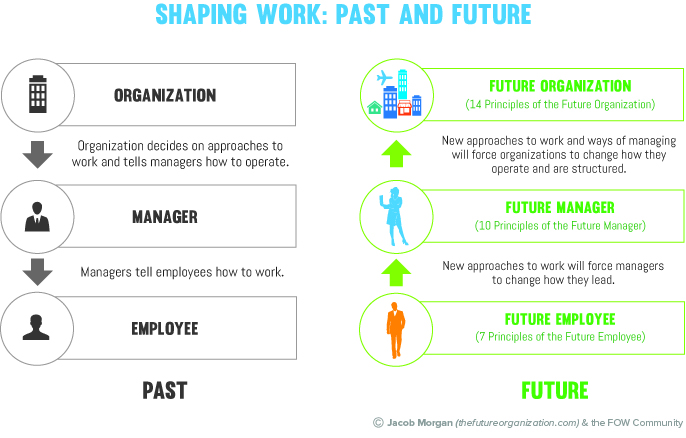At most organizations around the world decisions on how we work follow a very top down chain of command. The executives or key stakeholders that sit at the top of our organizations decide everything including how we work, what we work on, what we wear, who we work with, what technologies we use, and of course, where we work. These decisions are then passed down the food chain to senior and mid-level managers who then enforce these rules and pass them down to employees. However, we are now starting to see this trend completely take a 180 degree turn and employees are starting to drive the conversation. Why? Because of the five trends shaping the future of work, which are creating an unprecendented war for talent that is forcing organizations to shift from creating an environment where they assume employees need to work there to creating an environment where employees want to work there. Dan Pink said it best, “talented people need organizations less than organizations need talented people.”

In the corresponding image you can see how this is being reversed. Employees are bringing new values, attitudes, expectations, and ways of working into their organizations. This starts with the 7 principles of the future employee, which in turn allows for the 10 principles of the future manager, and finally forces the adoption of the 14 principles of the future organization. We already hear about organizations offering flexible work programs, implementing new management and leadership models, replacing annual reviews with real-time feedback, deploying collaboration technologies, offering new, “cool” perks, and much more. This is all a result of employees starting to drive more of the conversation around what they want and expect in the workplace.
Of course, this is by no means yet commonplace among organizations. But, it’s something that we are going to start to see much more of, especially as job security and longer term employe tenure continue to come into question by both employers and employees.
Comments